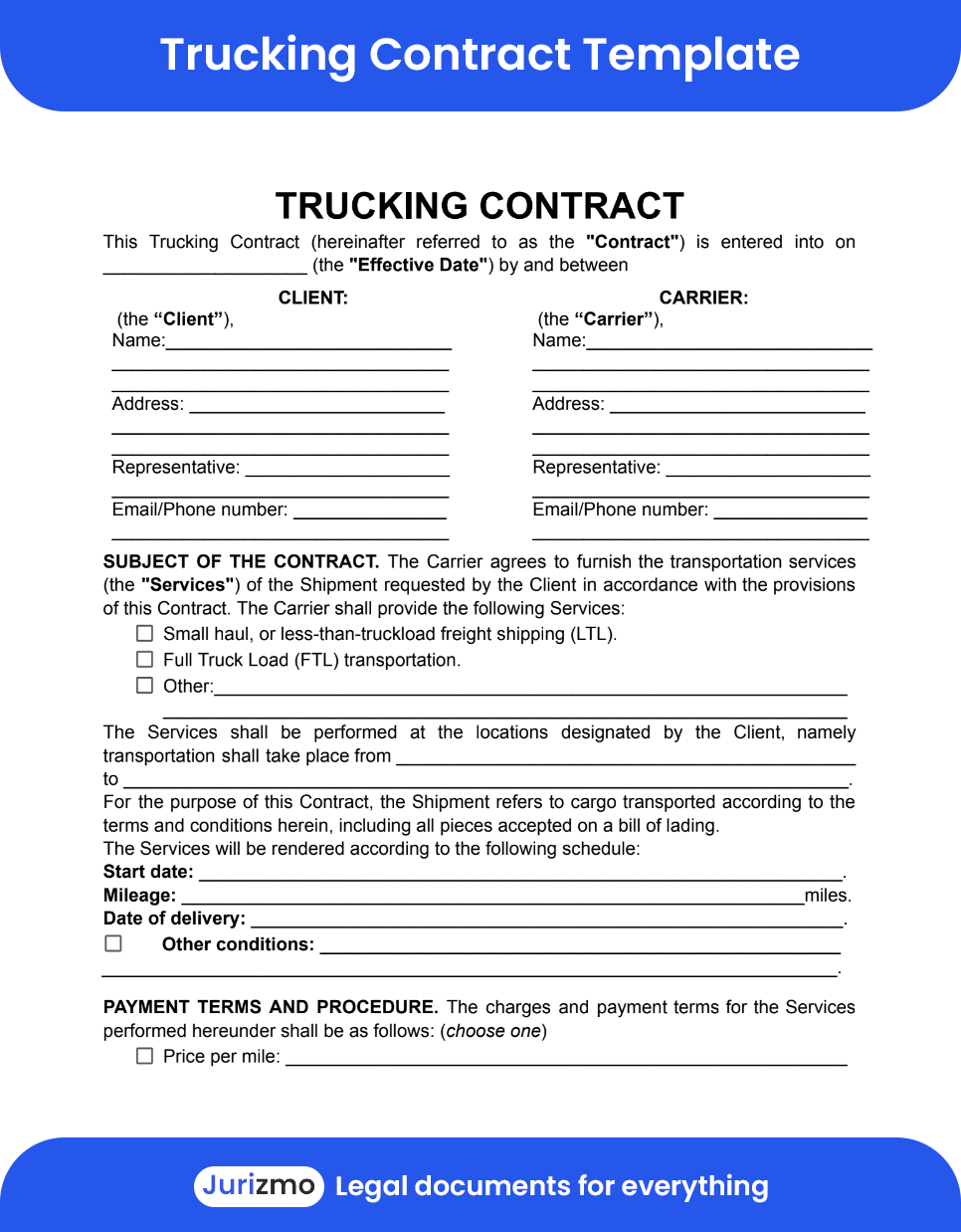 Preview
Preview

Getting into a trucking contract can be a major move for businesses and people in the transportation field. Having a detailed agreement that clearly explains the details and terms of your transportation project is really important. Accessing a professionally curated trucking contract template provides the flexibility to tailor it according to your unique needs and requirements.
Carriers and shippers typically rely on trucking contracts in the following scenarios:
In all these instances, having a well-structured trucking contract serves as a fundamental tool in establishing clear expectations and legal parameters for all parties involved in the transportation process.
A typical trucking contract involves two primary parties:
To enhance the clarity and effectiveness of this agreement, leveraging a trucking contract agreement sample can be immensely beneficial. Within the trucking contract, several essential terms are defined:
Developing a robust trucking contract involves several essential steps:
When creating a trucking contract, make sure it covers everything, follows the law, and is clear to everyone involved. You can verify your steps by aligning them with this checklist:
Utilizing a trucking contract template offers significant benefits to both carriers and shippers. Its structured format allows for a fair and thorough evaluation when determining suitability for a transport partnership.
Additionally, the trucking service agreement sample includes all the important information presented clearly and neatly. As a result, carriers and shippers can make smart decisions based on the detailed information provided.
 Preview
Preview
